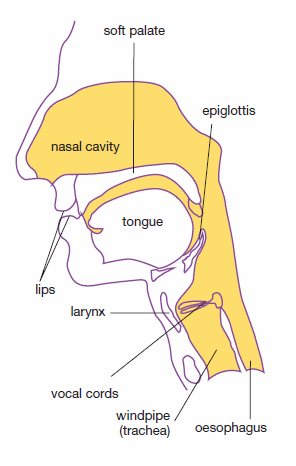Problems with how you speak can be a symptom of multiple sclerosis for some people. MS speech disorders include slurring of speech and problems with the quality of your voice (dysarthria) and difficulty remembering specific words (dysphasia).
A speech and language therapist may be involved in helping you cope with speech problems.
What are speech problems?
Speech problems may happen at any stage of MS. For most people they are relatively mild and manageable. Symptoms may be worse during a relapse or in the more advanced stages of the condition. However, the impact of any changes in speech will be very individual. For example, a mild difficulty could have a large effect on you at work. Or a larger change might not have so much impact on you if you tend to speak with fewer people who know you well.
The most common changes in speech and communication in MS include:
- slurring of speech
- problems with volume, strength or quality of your voice
- weakness of the chest muscles, making breathing and speech harder
- difficulty remembering specific words
- difficulty following longer or more complex conversations.
People with more advanced MS may find that the rhythm and intonation of their speech are disrupted, perhaps causing them to sound ‘robotic’. This is sometimes referred to as scanning speech.
What causes speech problems?
 Speech disorders in multiple sclerosis can be caused by weakness or lack of coordination in the muscles used in speaking. This is called dysarthria. Speech problems can also result from weakness of the chest muscles, affecting breathing and the production of breath to speak with.
Speech disorders in multiple sclerosis can be caused by weakness or lack of coordination in the muscles used in speaking. This is called dysarthria. Speech problems can also result from weakness of the chest muscles, affecting breathing and the production of breath to speak with.
Speaking involves several parts of the body that need to work together. This includes the lungs, diaphragm, vocal cords, lips, tongue and nasal cavity.
Damage caused by MS to the areas of the central nervous system that control any of these elements can affect your speech. Similarly, fatigue or weakness can affect any part of the process.
What can I do if I have speech problems?
- Try to speak slowly and regularly. Try to keep sentences short.
- If possible, try to plan to have important conversations when you are feeling least tired, as fatigue can make communication more difficult.
- Make the most of non-speech aspects of communication like facial expression, gesture and even referring to photos, written things or objects
- Using email or texts might be easier than speaking to someone on the phone when speech is difficult
- Check with your listener that they understand what you’re saying. If there are problems, this can avoid misunderstandings.
- Plan and support more complex conversations by making written notes and referring to them
There are more ideas for coping with the ‘tip of the tongue’ problem on the Staying Smart website.
What treatments are there for speech problems?
Treatment of speech disorders in MS often involves a speech and language therapist or a physiotherapist.


